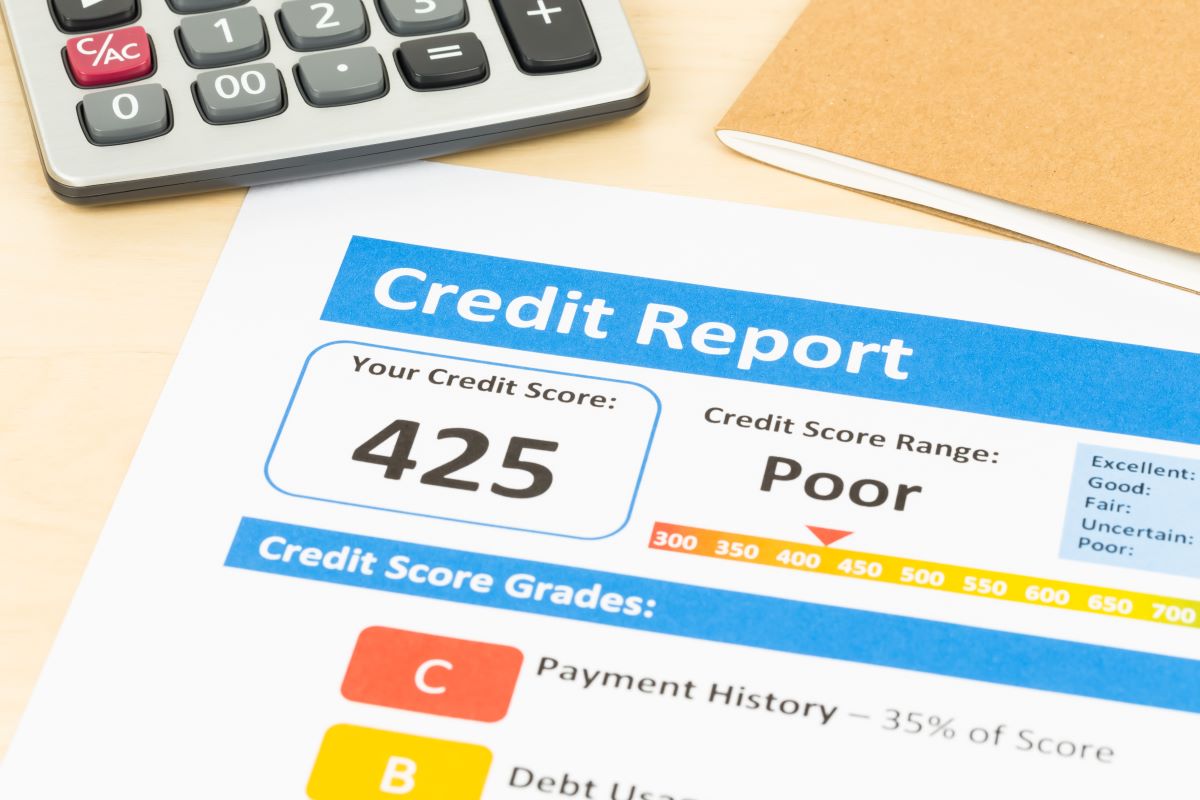After surprising news exposing a prominent banking institution for charging fake fees earlier this month, the Consumer Financial Protection Bureau (CFPB) is in the news again. Still, this time, their data is showcasing a significant gap in credit report accuracy.
According to a recent study by FCRA by Fair Credit, one-quarter of all credit reports are inaccurate. Residents of West Virginia are among those with the lowest average credit scores in the country, and with the lowest overall number of credit report complaints generated, they may benefit most from taking a closer look at their credit scores.
Earlier this month, the CFPB exposed the Bank of America for illegally charging clients junk fees, opening fake accounts, and withholding credit card rewards. The Bank of America was ordered to pay more than $100 million to affected clients and $150 million in penalties to overseeing agencies. With FCRA by Fair Credit’s recent study, they are again shedding light on the importance of paying close attention to your financial statements and reports and checking for errors.
A spokesperson for FCRA.com comments on the study’s findings: “When discovering they have a low credit score, many people assume they need to make drastic changes to their financial habits. However, in every fourth case, at least, it is entirely not their fault and is simply a matter of correcting one’s credit report.”
States That Would Benefit Most From Reviewing Their Credit Reports
The average national credit score in America is 714, which falls in the “good” range for most credit calculators. FCRA by Fair Credit’s study found that 18 U.S. states have average credit scores below this national average. Out of this list of 18, they identify West Virginia, New Mexico, Kentucky, Oklahoma, and Indiana as the states with the most room for improvement in scores in the country.
How can they improve their scores? Beyond managing credit card debt, paying down loans, and making timely payments, individuals may also benefit from submitting credit report complaints.
The Federal Trade Commission estimates that around one in four credit reports contain errors, so Americans ought to be filing complaints whenever they feel their report may be inaccurate.
Among the lowest-ranking states, West Virginia stands out for having the fewest number of complaints about credit scores, further solidifying their low ranking on the list. Only 52 people in 100,000 in this state take formal action to have their credit reports corrected. West Virginia’s residents can potentially boost their average credit score of 700.
Residents of New Mexico (where 68 out of 100,000 individuals file complaints), Kentucky (where this figure is at 73 out of 100,000), Oklahoma (with only 92 complaints filed per 100,000 people), and Indiana (at 102 residents filing complaints) would also benefit from speaking up.
In New Mexico, the average credit score is 699. Kentucky has held a score of 702 on average for over two years now.
Oklahoma sits at an average of 693. Indiana is just shy of the national average, sitting at 712 for their average score. Despite some of these states being relatively close to the national average scores, residents would benefit the most from reaching out to complain if they feel their report may be incorrect, as they are the states with the fewest complaints in the country.
FCRA.com’s spokesperson shares, “We were very surprised to learn that very few people are aware, firstly, that there is a 25% chance that a low credit score is not their fault and, secondly, that this can be easily fixed by taking legal action. Errors in your credit report, background check, or tenant screening can lead to unfair interest rates, higher rent, and even cost you your job or dream home. Checking your credit score is currently free via the official website – annualcreditreport.com – and can save you a great deal of grief when you need that three-digit number to be in top shape.”
What Most People Are Complaining About
The Consumer Financial Protection Bureau reports just shy of 200,000 credit report complaints from U.S. residents between September 2021 and 2022. These folks are among many looking for answers as to why their credit scores are lower than anticipated.
According to the study, two-thirds of the complaints issued by U.S. residents are due to someone else’s information affecting their credit scores. Specifically, 131,989 of the total 197,709 credit report complaints from September 2021 to 2022 concerned incorrectly attributing someone else’s data to a report. This is the case for the limited number of complaints issued in the states of West Virginia, New Mexico, and Kentucky.
However, The complaint types vary by region, as research shows distinct complaint trends in the remaining states with lower-than-average complaint volumes.
In Oklahoma, a consistent theme of complaints about misused reports appears. The data shows that these complaints are most often resolved following the complaint process.
In Indiana, complaints range widely and tend to focus on the above two themes (incorrect information and improper use) and investigations into existing problems. The term existing problems was not defined within the study’s report, although these inquiries typically go unresolved.
Americans are working hard to bring in more money during these difficult economic times. Being hit with a lower-than-expected credit report may have drastic implications. If you’re anxious about filing a complaint about your credit report, remember that your borrowing capabilities are on the line, and the review of your current score may result in significant relief.
More From Mama Say What?!
Arizona and Texas Are The Most Popular States To Raise a Family; here’s Why
10 of the Best Apps That Pay You Money in 2023
This post Administrative Errors Responsible for 1 in 4 Americans’ Low Credit Reports first appeared on Mama Say What.
Featured Image Credit: Shutterstock /Casper1774 Studio
Rachael Westgate is a skilled writer specializing in political and economic journalism, often employing the Associated Press (AP) style in her work. Her articles are known for their clarity, precision, and adherence to the highest journalistic standards.





